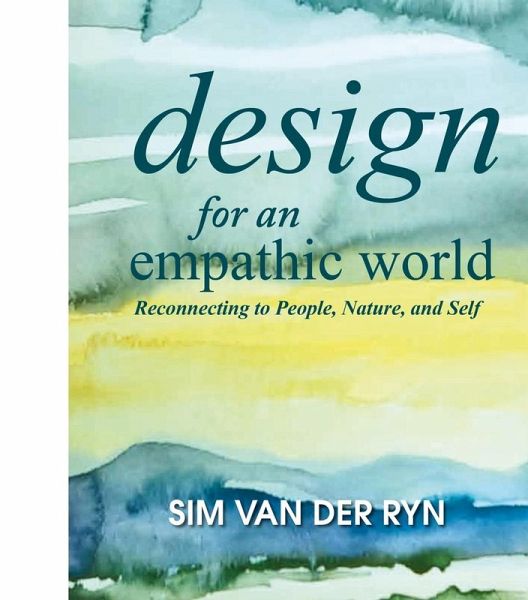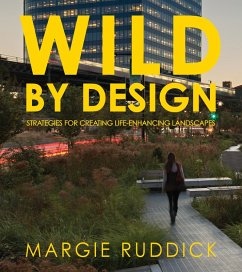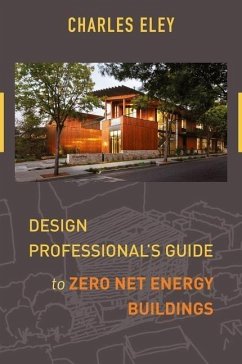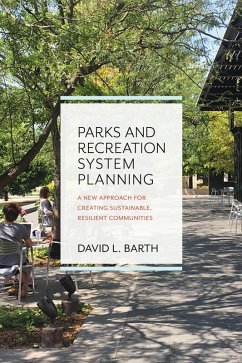
Design for an Empathic World (eBook, ePUB)
Versandkostenfrei!
Sofort per Download lieferbar
41,95 €
inkl. MwSt.
Weitere Ausgaben:

PAYBACK Punkte
21 °P sammeln!
Despite an uncertain economy, the market for green building is exploding. The US green building market has expanded dramatically since 2008 and is projected to double in size by 2015 (from $42 billion in construction starts to $135 billion). But green-building pioneer Sim Van der Ryn says, "greening" our buildings is not enough. He advocates for "empathic design", in which a designer not only works in concert with nature, but with an understanding of and empathy for the end user and for one's self. It is not just one of these connections, but all three that are necessary to design for a future...
Despite an uncertain economy, the market for green building is exploding. The US green building market has expanded dramatically since 2008 and is projected to double in size by 2015 (from $42 billion in construction starts to $135 billion). But green-building pioneer Sim Van der Ryn says, "greening" our buildings is not enough. He advocates for "empathic design", in which a designer not only works in concert with nature, but with an understanding of and empathy for the end user and for one's self. It is not just one of these connections, but all three that are necessary to design for a future that is more humane, equitable, and resilient.
Sim's lifelong focus has been in shifting the paradigm in architecture and design. Instead of thinking about design primarily in relation to the infrastructure we live in and with-everything from buildings to wireless routing-he advocates for a focus on the people who use and are affected by this infrastructure. Basic design must include a real understanding of human ecology or end-user preferences. Understanding ones motivations and spirituality, Sim believes, is critical to designing with empathy for natural and human communities.
In Design for an Empathic World Van der Ryn shares his thoughts and experience about the design of our world today. With a focus on the strengths and weaknesses in our approach to the design of our communities, regions and buildings he looks at promising trends and projects that demonstrate how we can help create a better world for others and ourselves. Architects, urban designers, and students of architecture will all enjoy this beautifully illustrated book drawing on a rich and revered career of a noted leader in their field. The journey described in Design for an Empathic World will help to inspire change and foster the collaboration and thoughtfulness necessary to achieve a more empathic future.
Sim's lifelong focus has been in shifting the paradigm in architecture and design. Instead of thinking about design primarily in relation to the infrastructure we live in and with-everything from buildings to wireless routing-he advocates for a focus on the people who use and are affected by this infrastructure. Basic design must include a real understanding of human ecology or end-user preferences. Understanding ones motivations and spirituality, Sim believes, is critical to designing with empathy for natural and human communities.
In Design for an Empathic World Van der Ryn shares his thoughts and experience about the design of our world today. With a focus on the strengths and weaknesses in our approach to the design of our communities, regions and buildings he looks at promising trends and projects that demonstrate how we can help create a better world for others and ourselves. Architects, urban designers, and students of architecture will all enjoy this beautifully illustrated book drawing on a rich and revered career of a noted leader in their field. The journey described in Design for an Empathic World will help to inspire change and foster the collaboration and thoughtfulness necessary to achieve a more empathic future.
Dieser Download kann aus rechtlichen Gründen nur mit Rechnungsadresse in A, B, BG, CY, CZ, D, DK, EW, E, FIN, F, GR, HR, H, IRL, I, LT, L, LR, M, NL, PL, P, R, S, SLO, SK ausgeliefert werden.













